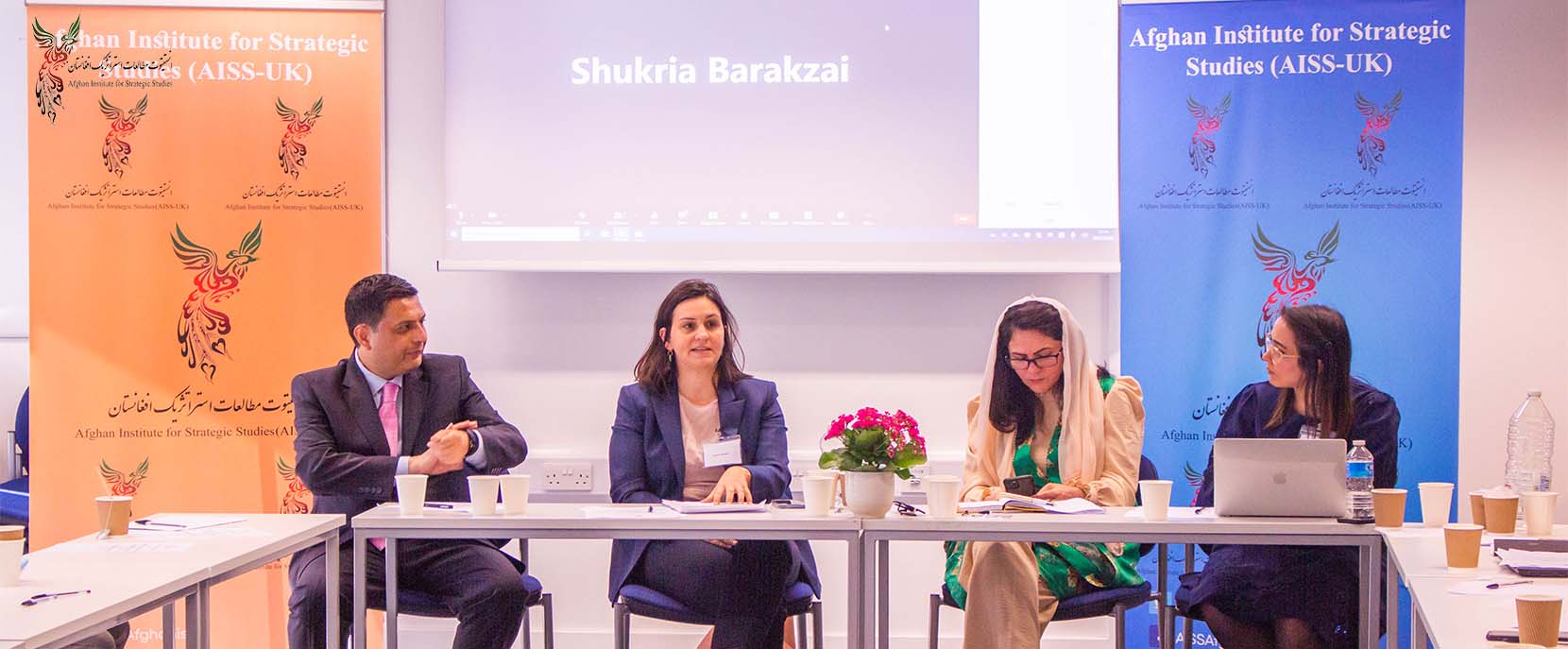AISS-UK Roundtable: Taliban’s Gender Apartheid "From Condemnation to Accountability"

On July 29, 2022, Afghanistan Institute for Strategic Studies-AISS held its first hybrid roundtable discussion on Taliban’s Gender Apartheid at university of Sussex to create an effective global alliance with representatives and key stakeholders for protection of Afghan women against Taliban’s gender apartheid regime and exploring the ways forward in the herculean task of holding the Taliban accountable.
On the eve of the first anniversary of Taliban’s takeover of Afghanistan,Taliban’s systematic violation of women rights has reinstalled a gender apartheid system, mandating new restricted rules for Afghan girls and women. However, this system has faced little accountability from international community.
The first panel was about Afghan Women: Arduous struggle for emancipation which was moderated by Khandan Danish, women rights activist with participation of panelists Monisa Mubariz, women’s rights activist who joined online from Kabul, Dr Mujib Rahman Rahimi, former spokesperson of Afghanistan’s High Peace Council and diplomat, and Nahid Baqi, researcher and Journalist. The second panel was on “From Rhetorical Condemnation to Effective Accountability” which was moderated by Meetra Qutb, Journalist with participation of panelists, Shukria Barakzai, Former Afghan Ambassador in Norway (online), Fawzia Koofi, former member of Parliament and negotiation team, Lauren Aarons, Deputy Director on Gender, Amnesty International, and Richard Bennett, Special Rapporteur on the situation of human rights in Afghanistan (online).
Ms. Mubariz highlighted Taliban’s rules restricting social, political and economic rights of Afghan women and girls and provided clear example of Taliban’s brutality against women. She emphasized that Taliban’s access to humanitarian assistance should be limited. Ms. Baqi explained the role of social media and communication tools for Afghan women’s battle and she argued that use of social media and internet threat women’s safety. Dr. Rahimi provided an historical narrative of gender apartheid in Afghanistan, the genesis of Afghan women’s struggle and a framework for the way forward. Mr. Bennett provided explanation of his own mandate as special rapporteur, practical mechanisms and international tools for making Taliban accountable. He argued that the current situation of Afghan women is gender prosecution which is crime against humanity. Ms. Barakzai argued that Doha agreement gave Taliban’s legitimacy because the agreement by nature had to value for democracy. Ms. Barakzai emphasized that international community should break its silence and be accountable to put an end dot to the culture of impunity in Afghanistan with full power. Ms. Koofi pointed out on national and international leverage that could bring Taliban to accountability. She emphasized on the role of Afghan people and women themselves to take action and play their historic role of mediator. Ms. Koofi argued that international community should develop a clear mechanism on engaging with Taliban otherwise the world will face another 9/11 incident. Ms. Aarons discussed findings of Amnesty international’s recent report which reveals horrible abuses and violations of Afghan women’s right by the Taliban.
A summary of key findings of the roundtable will be released in due course.
